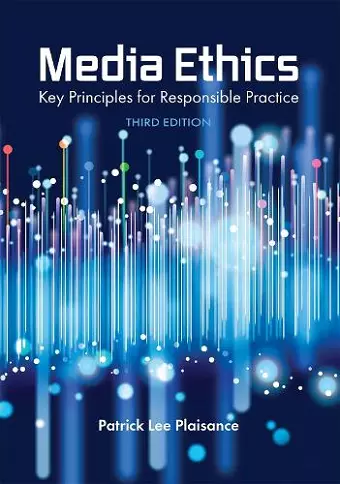Media Ethics
Key Principles for Responsible Practice
Format:Paperback
Publisher:Cognella, Inc
Published:31st Jul '20
Currently unavailable, and unfortunately no date known when it will be back

Media Ethics: Key Principles for Responsible Practice equips students with the knowledge and critical skill sets they need to develop a solid foundation in ethical thinking and responsible media behavior. The text balances ethics theory with case studies to explain key ethical principles and their application in real-world media practice.
The book introduces classical and contemporary ethics theory and helps students develop a greater understanding of and appreciation for the deliberative process required for responsible media practice. Dedicated chapters address key ethical principles including transparency, justice, harm, autonomy, privacy, and community. Case studies throughout the book provide examples of media behaviors that have posed real-life dilemmas. These contemporary examples underscore the need for ethical media practice and also set the stage for lively debate and reflection.
The third edition includes up-to-date case studies, media research, and ethics theory applications to media technologies. Three new chapters address moral decision-making in everyday life, the key factors involved in being a responsible media consumer, and ethical and policy questions surrounding Big Data and our data-driven media system.
Developed to foster ethical thought and decision-making, Media Ethics is the ideal textbook for courses dealing with ethics in journalism, public relations, advertising, strategic communication, and media marketing.
This is a good book, well written, highly literate but also highly accessible, explaining ideas very clearly. The authors claims to distinguish his text by centering it on the philosophy of ethics and the philosophical justification for asserting principles, which I find to be exactly what he does, and he does it very well. The resulting text is thereby more substantive and more deliberative, providing the young media professional with a robust framework from which to parse out the at times novel circumstances they will undoubtedly confront in today's dynamic media environment, additionally providing a set of key principles that aid in relating the philosophy of ethics to practice. I particularly like that Professor Plaisance charges the media consumer with 'a moral duty to minimize their own ignorance, to work at being a citizen capable of effectively engaging the wider world, to inform themselves of the realities beyond their own life bubble, and being savvy about what we are reading and watching, and gain a sold understanding of bias.' Would that all citizens read this and took its charge to heart. The world would be better." —Lawrence L. Garber, Jr., Ph.D., Associate Professor of Marketing, Elon University
“Media ethics may sound like an oxymoron - like government intelligence - but in his book, Plaisance makes it crystal clear that if society is to be virtuous, and indeed more civil, practitioners across all media disciplines, whether journalists, public relations-advertising-marketing professionals, or social media technologists, must seek authenticity, transparency, accountability, and, most of all, the common good, in all that they do. The future of what we consider ‘civil’ization hangs in the balance." —Dr. Donn J. Tilson, APR, Fellow PSRA, Associate Professor Emeritus of Public Relations, School of Communication, University of Miami
ISBN: 9781516586684
Dimensions: unknown
Weight: unknown
368 pages
3rd Revised edition